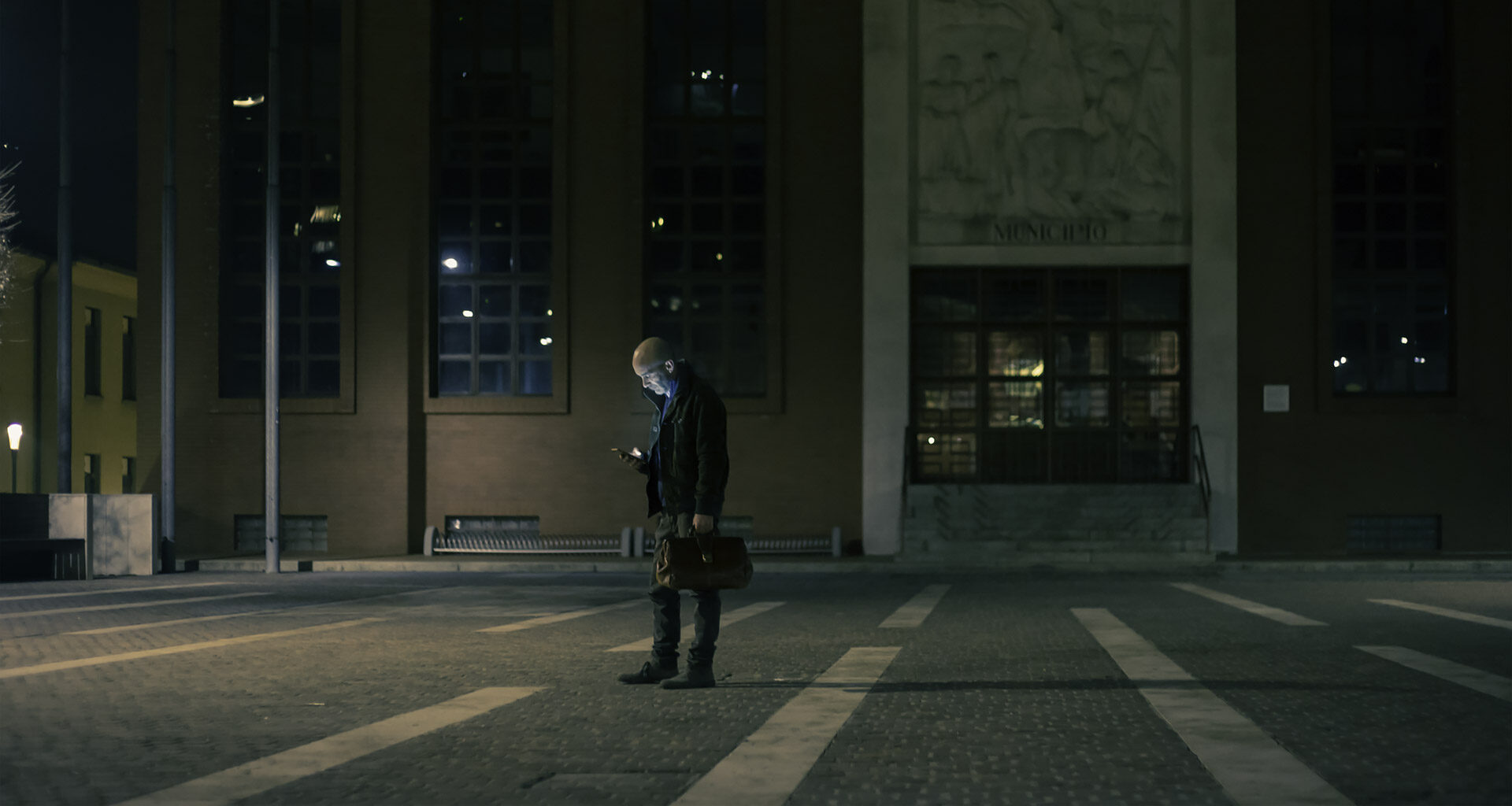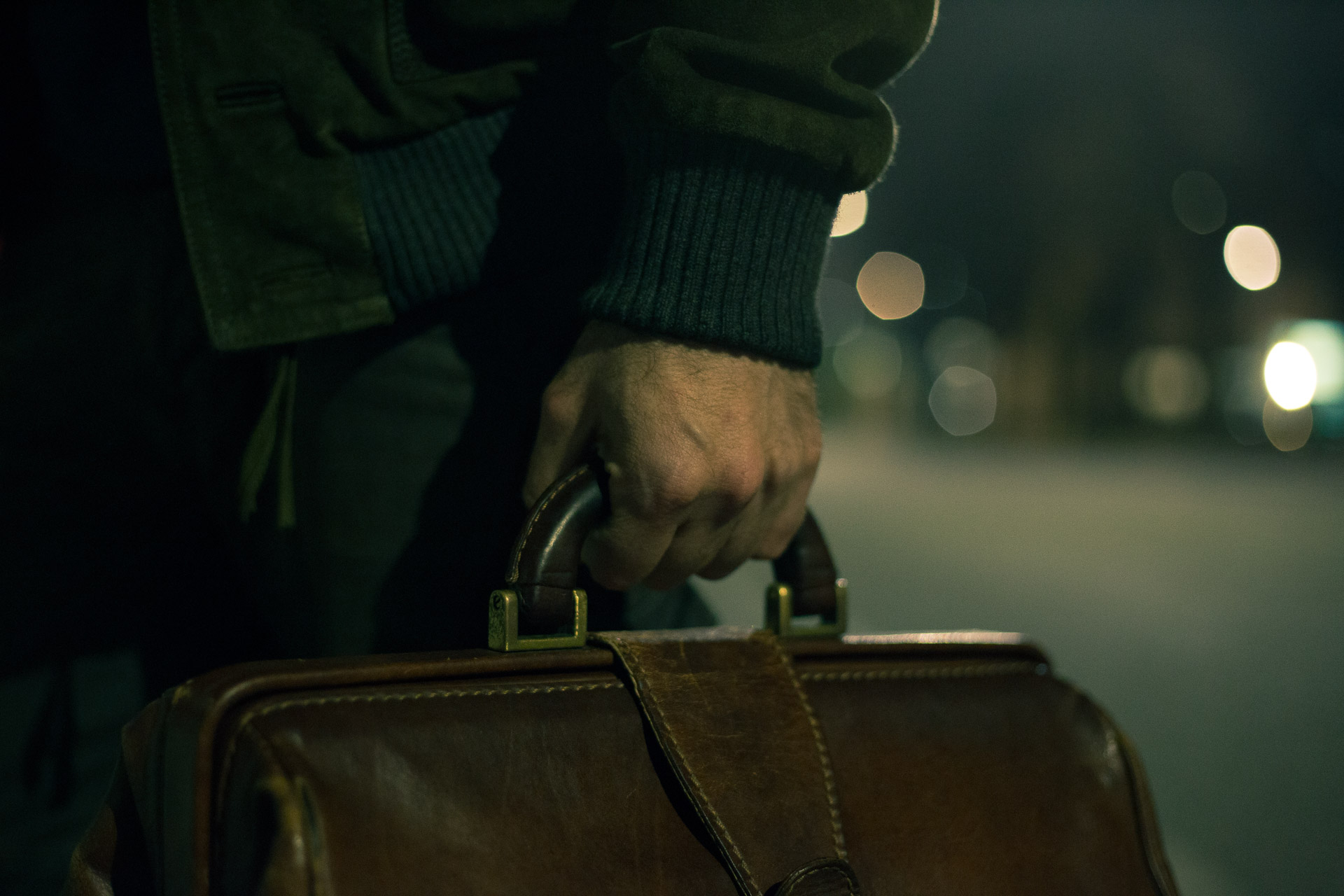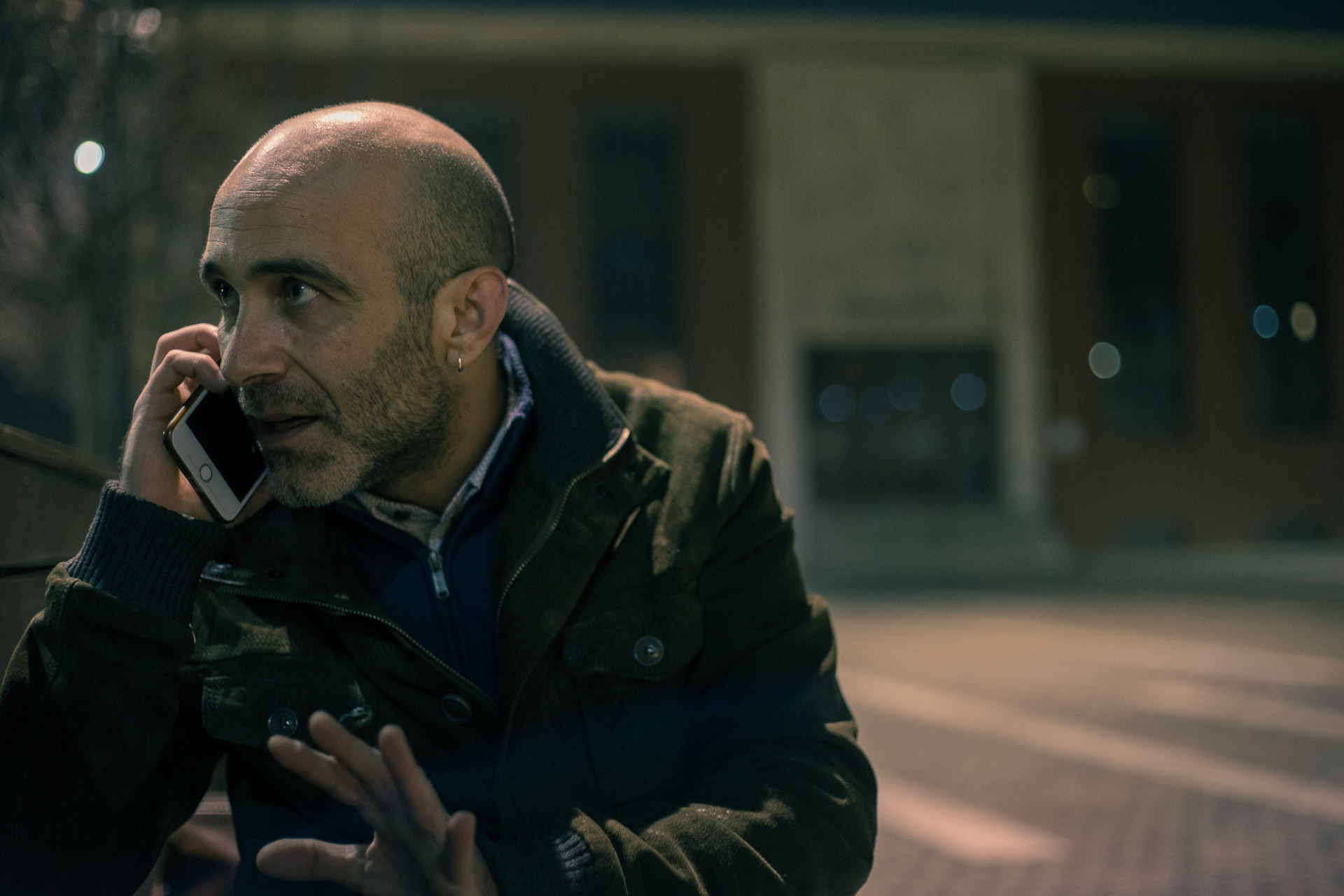2021
“He has become famous everywhere because he visits his patients at home and because not a single one has died on him. A day spent with him explains a lot about Covid and Long Covid.” Francesca Borri

NEMBRO (Bergamo). A year later, his phone is still ringing off the hook. Now, however, they no longer call only from Nembro. They call from all over Italy. Riccardo Munda is 39 years old and leather-bagged, like the doctors in the movies. And yet it is true.
In March, while out of 11,000 inhabitants here there were 154 deaths (as opposed to 17 in 2019), or 1.3 percent of the population, he was the only one who visited house to house, buying 600 euros worth of scrubs and masks out of his own pocket, and a Vaporella.
He arrived: and while he was with a sick person, a neighbor was already knocking on the door. Of his choice to stay in the midst of an epidemic, he would only say: and where should I stay? Among the healthy? As of March 2020, there were zero deaths among his patients. And a year later they are still zero.
A year later, everyone in Nembro has a story for journalists, everyone was swept up in Covid-19, but everyone tells you: instead of me, write rather about Riccardo Munda.

Because only from Rome, only from the government, no one ever called. Between the lockdown and the antibodies, found in 42 percent of the population, the second wave was not felt here.
But, in the rest of Italy, it mowed down more deaths than the first. And one in five, still, in Lombardy. “And it’s like it was all for nothing,” Riccardo Munda tells us at dawn as the bright stars, in the square, go out, and he dismounts from the night shift.
They are not Christmas leftovers: they are one for every dead person.
But then, in these months, instead of investing in doctors, we bought scooters. Each of us has about 1,400 patients. And I’ve said it all.”

A moral question.
He turns his phone back on. It has 142 WhatsApp notifications. As of March 2020, one in four doctors here is infected. And the law now authorizes remote visits. Listened to on speakerphone, many take place like Greta’s. Who is 40 years old, and she is alone with three children, and she had Covid-19, and she was on ventilation for a long time, and of Covid-19 she also lost her father. And now she has fever all the time. “At first, she would regularly go back to the hospital for checkups. But he would find a different doctor each time, and it was like starting from scratch,”
Munda recounts, as he tries to understand why, at the slightest exertion, her oxygen plummets below 90. But first he is interrupted by one of the children, and then by the Amazon courier, and then by the Bartolini courier, and then by another one of the children, and also by the cat-with the saturation meter marking a different value with each finger. “Nothing. I’ll pass tomorrow, that’s the only one,” he sighs. Then, “It’s because of a moral issue, even before a medical one. Because one thinks: it’s just a little fever. But like this, a person alone and with three children can’t even enter the supermarket.”
The friend of the friend of the cousin of the cousin across the street….
A year later, doctors actually fear ending up in court, more than in the hospital. “As dangerous as it is especially for people over 70, the virus remains unpredictable. And so, not to risk it, if you’re positive they immediately activate the Covid-19 protocol. They bombard you with drugs,” explains Munda as he responds to the friend of a cousin of one of his patient’s headmaster’s friend, who has 37.4, and is on his second Tachipirin. “But for a couple of days just wait,” he reassures her, ”because a fever is a symptom, right? And a symptom is a signal. And if you eliminate it for me, how do I understand what it signals? How do I assess what the most likely course is? And maybe I damage you more than the virus.”
But by now it’s panic. And panic clogs hospitals. At Pope John’s in Bergamo, they examined 767 patients from the first wave. And one in two still has problems: it’s the so-called Long Covid. That affects the lungs, but often also the heart and brain. And sometimes it’s an effect of intensive care, or other diseases.
Sometimes it’s just psychological. But others it is the effect of wrong care. Maybe those in the early days, when it was trial and error. Of the 767, 16 percent are no longer independent. “These are the first cases. And it’s all still to be deciphered. Listen to this message, though”: it’s from one of his patients who is now breathing again. “I studied the x-rays. The tests. And it came to me that she had some kind of latent pneumonia. Because they often treat you with cortisone. That flushes, though. It doesn’t cure. And so at the negative swab you think you’re cured. But no, not completely. Can I say. This virus rarely wins on its own merit.”
“Non curo il virus”
“I don’t cure the virus. For that there is no treatment. I treat its complications. And that is the pneumonia. So that the immune system can focus on the virus and get where medicine, for now, doesn’t get.” Munda is not deluding anyone. He makes no promises. “I follow the patients, that’s all. Day by day.” In fact, he does even more than that. He goes back twice to an 81-year-old man, and as he adds two drops and removes a pill, he calculates how much the medications he takes most often cost.
One 6.94 euros, two a day for twenty-two days. The other 7.82 euros. Three packs. That makes 328 euros. Versus two thousand a day for a hospitalization. He never says that the deaths, among his patients, are zero. Because honestly, that’s not the point, he explains as he enters Salvo Mazzola’s bakery for a moment: that to the emergency number operator who asked him if his father was breathing, he replied: it seems to me that he was, while no, he was not breathing, and he died. And a year later, he only repeats: I swear, he was breathing. Munda comes in to tell him that it was not his fault. “That zero is also a matter of luck. The point though is to be there. Because many dead people could die better. And the living would also live better.”
“Don’t write about us. Write about him,” Mazzola recommends, while Munda is on the phone. With one who has only been prescribed Augmentin. “And, if he dies, the truth is that he dies of Augmentin.”
Francesca Borri © Repubblica
